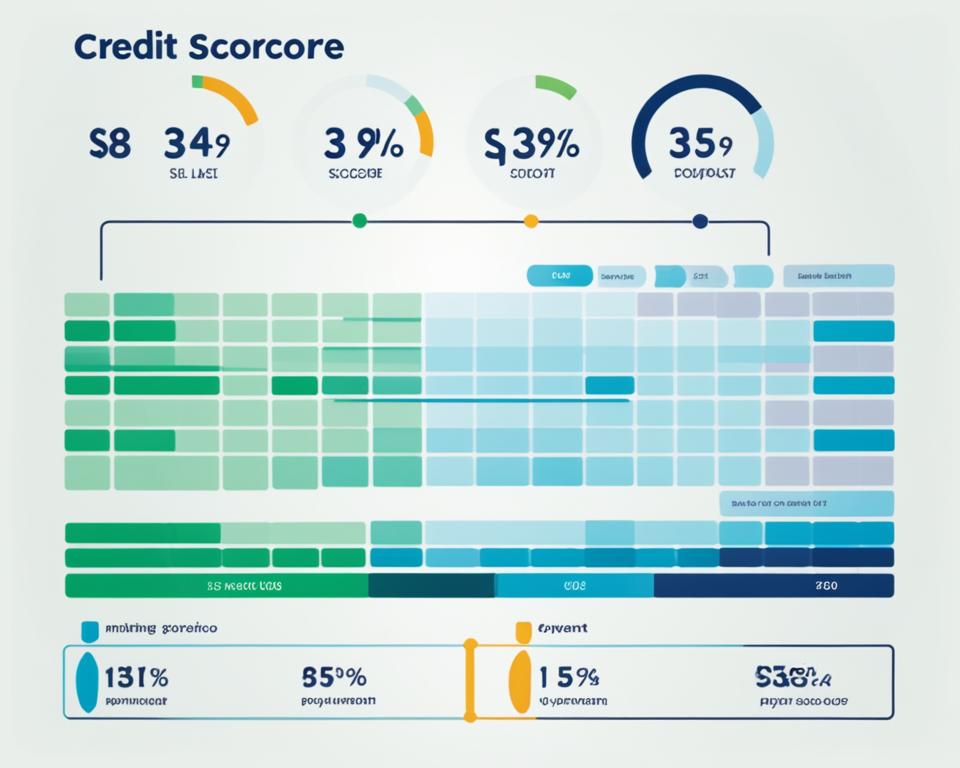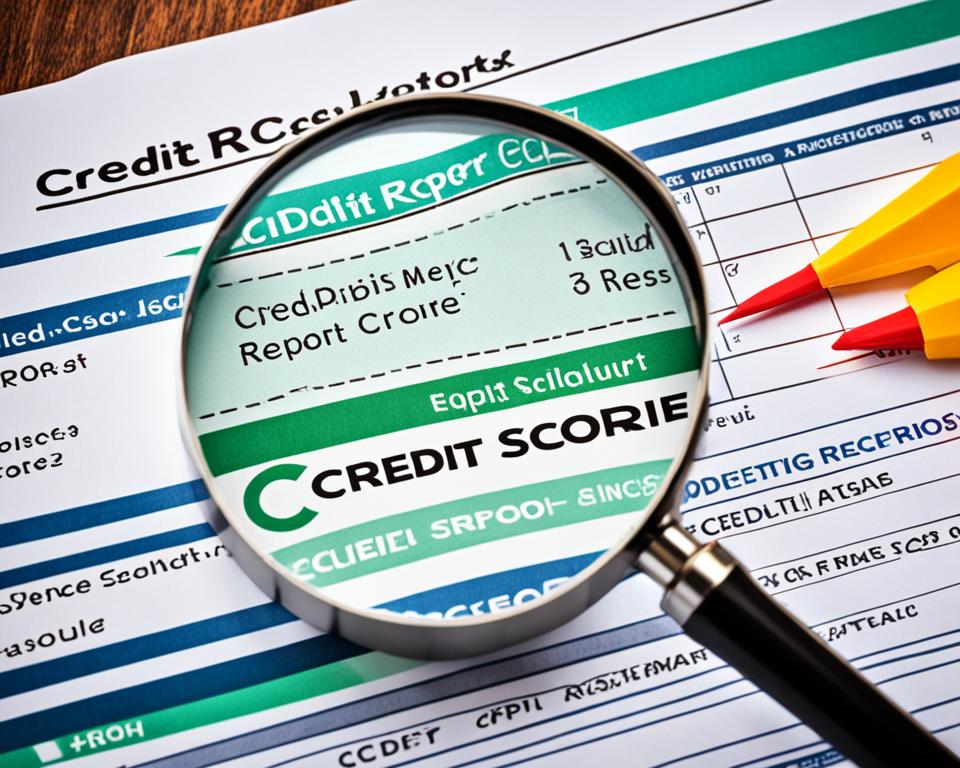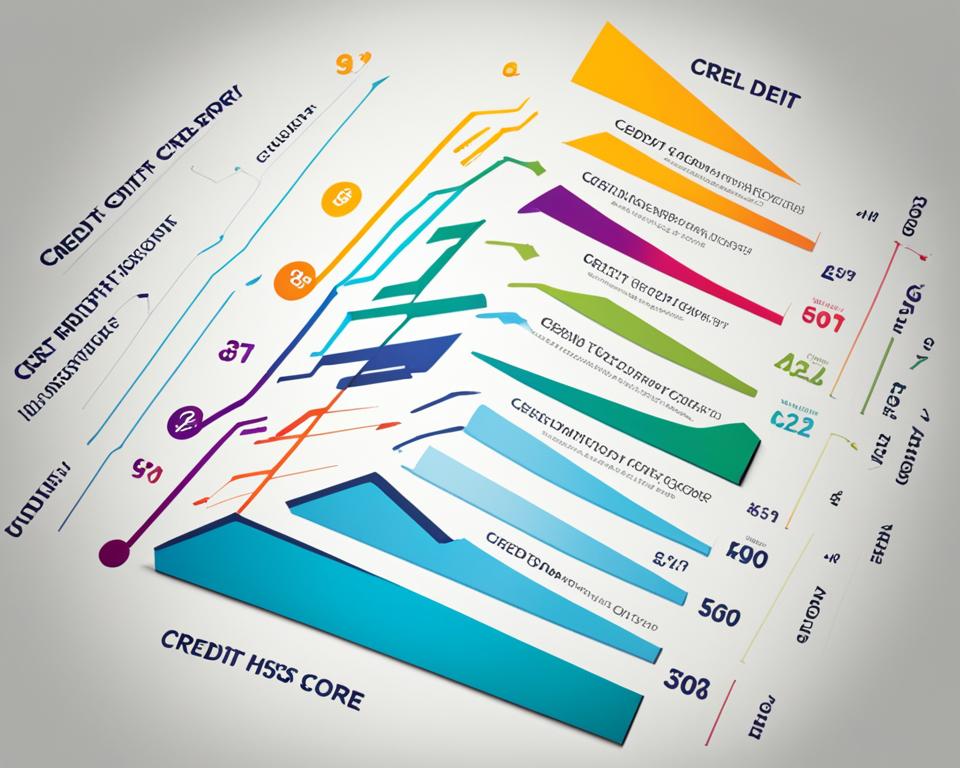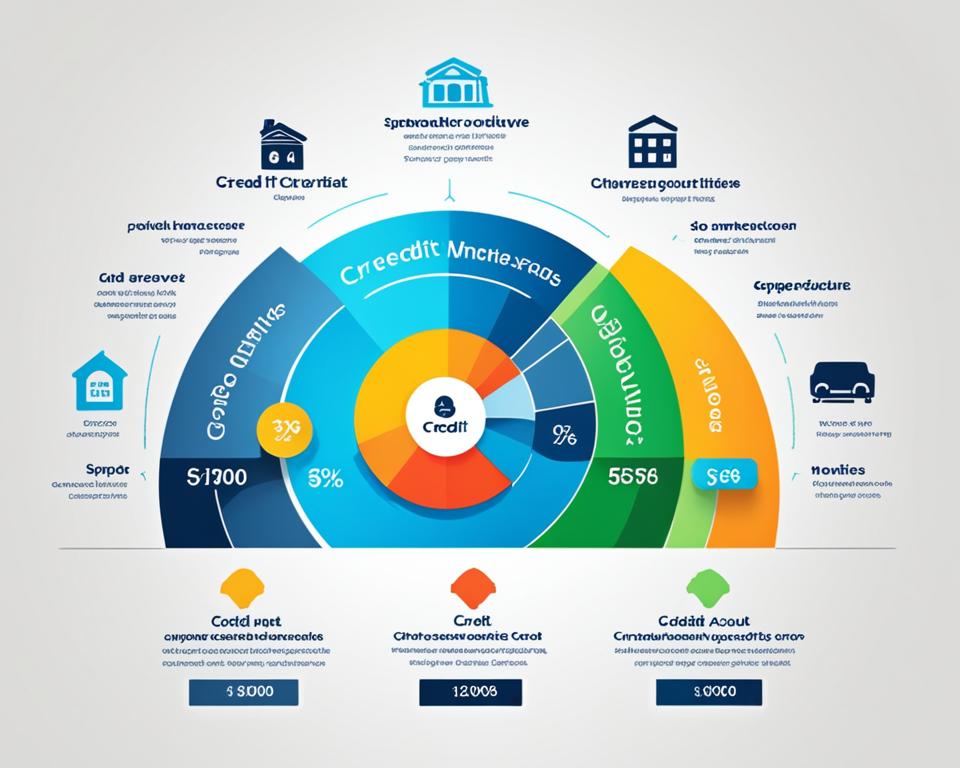Understanding credit reports is more than a necessity; it’s a pivotal step in managing one’s financial journey. These detailed documents not only reflect an individual’s credit history but also serve as the basis for calculating credit scores. They play a significant role in how lenders assess creditworthiness, making it imperative for consumers to stay informed and vigilant. In the United States, where financial credibility is of paramount importance, this knowledge empowers individuals to make confident financial decisions.
Mistakes and inconsistencies in credit reports can lead to unwarranted stress and financial hurdles. Keeping an eye on credit reports, spotting any errors, and knowing how to lodge a credit report dispute can prevent potential damage to one’s financial reputation. Moreover, the practice of credit monitoring ensures that individuals are always aware of their current credit standing, ready to respond to any fraudulent activities, and positioned to utilize opportunities for credit improvement.
It’s not just about reviewing these reports; it’s about comprehending the implications behind each entry. A credit score, influenced by a myriad of factors detailed within the report, holds substantial weight in many aspects of life, from securing loans to renting an apartment. Hence, grasping the intricacies of credit reports is essential for every financially active citizen.
Key Takeaways
- A thorough understanding of credit reports is essential for financial health and credibility.
- Regular monitoring and disputing of inaccuracies can protect and enhance credit scores.
- Credit reports contain detailed records that influence lending decisions and creditworthiness.
- Knowledge of your credit history aids in preventing identity theft and maintaining financial stability.
- Empowering consumers through education on credit reports equips them to take control of their financial futures.
Demystifying the Credit Report
At the heart of your financial identity lies the credit report, a document that stands as a testament to your creditworthiness. Far more than a simple ledger of your financial past, these reports crafted by credit report agencies hold the power to influence major life decisions. To navigate this landscape effectively, one must grasp the fundamental purpose of a credit report and learn how to read such a document meticulously to prevent and rectify any credit report errors that may arise.
The Purpose of Your Credit Report
A credit report serves as a mirror reflecting the history of your financial dealings. It’s a critical assessment tool for lenders, landlords, and even some employers, who gauge your reliability through this detailed chronicle. The meticulous examination of this report can reveal insights into your financial habits, illuminate areas for potential improvement, and ensure the accuracy of what is essentially your fiscal DNA.
Breaking Down the Credit Report Structure
The structure of a credit report may initially appear complex, but a closer look reveals it’s a collection of core sections, each painting a part of a larger financial portrait. Understanding these segments’ nuances is crucial for those aiming to spot discrepancies and manage their credit history effectively.
| Section | Description | Common Errors to Watch For |
|---|---|---|
| Personal Information | Includes your name, Social Security number, and address | Mistyped names or outdated addresses |
| Employer History | Lists current and past employers | Incorrect employment history |
| Credit History | Details your open and closed accounts and payment records | Outdated or mistaken account details |
| Public Records | Contains financial legal issues like bankruptcies | Outdated judgments or wrongful entries |
| Credit Inquiries | Documents when your credit report was accessed | Unrecognized inquiries that may signal identity theft |
As you digest the contents of your credit report, specifically from major credit report agencies such as Equifax, Experian, and TransUnion, it’s imperative to scrutinize each section. Acquaint yourself with the personal information to ensure it’s exclusively yours, dissect the account records confirming their veracity, and scrutinize public records for undue marks that could unfairly shadow your financial reputation.
Indeed, encountering credit report errors can be unsettling, but knowledge is power in these instances. Familiarize yourself with the process of identifying and disputing errors and engage regularly with these pivotal financial statements to uphold the integrity of your credit report.
Accessing Your Credit Reports
Ever wonder how you can access your credit report? It’s simpler than you might think. Federal law entitles you to a free copy of your credit report every 12 months from each of the leading credit reporting bureaus – Equifax, Experian, and TransUnion. Perfecting the art of credit management begins with understanding the details that shape your financial report card.
You need not navigate this journey alone; AnnualCreditReport.com serves as your gateway to obtaining these crucial documents. Secure a comprehensive view of your financial standing by requesting your reports from all three bureaus at once. This strategy not only saves time but also empowers you to compare and contrast records, ensuring uniformity and pinpointing any potential inaccuracies.
Let’s take a moment to understand what your credit report encompasses:
- Personal details, for verifying your identity.
- The credit accounts you have, ranging from credit cards to loans.
- Your credit inquiries, both soft and hard pulls.
- Any public records like bankruptcies or foreclosures that may exist.
- The all-important credit score, a snapshot of your credit risk.
| Step | Action | Outcome |
|---|---|---|
| 1 | Visit AnnualCreditReport.com | Start the process to get your credit report. |
| 2 | Provide required personal information | Ensure the reports you receive pertain to you, and only you. |
| 3 | Select Equifax, Experian, TransUnion | Gain access to the trifecta of credit reporting for in-depth analysis. |
| 4 | Submit your request | Receive credit reports to examine and validate your financial transactions. |
Remember, spotting discrepancies early on grants you the power to rectify them before they can make waves in your financial endeavors. Regularly examining your credit reports from Equifax, Experian, and TransUnion can act as a cornerstone in maintaining impeccable credit health.
If you’re poised for a credit check, circling a significant purchase, or simply planning a systematic financial review, wielding the insights from all three credit bureaus arms you with the precision of a financial advocate. Be proactive to get a credit report annually, ensuring that your path to financial enlightenment is clear and unencumbered.
Understanding Credit Reports

A seamless pathway to financial literacy involves an intimate understanding of credit reports. The meticulous documentation that composes your credit report is vital—it’s a curated summary of your credit history that potential creditors, employers, and rental agencies may review to assess your financial stability. Essentially, it records your financial behavior, capturing every nuance from on-time payments to the total amounts you owe, providing a transparent overview of your economic reliability.
What is a Credit Report?
Consider your credit report as your financial curriculum vitae, consistently updating itself over the years. It contains detailed entries of credit history, from the credit you’ve utilized to payment patterns over time. Each entry, each figure in your report, tells a story about your financial reliability, which collectively informs your credit score. For those seeking to understand or improve their credit score, grasping the intricacies of their credit history becomes indispensable. And for individuals aiming to address inaccuracies, initiating a credit report dispute is a crucial step towards correcting the official record of their financial narrative.
The Role of Credit Report Agencies
Credit report agencies are the architects behind the scenes, constructing a financial profile that is as accurate and comprehensive as possible. These agencies, including household names like Equifax, Experian, and TransUnion, gather data and shape it into credit reports, which form the cornerstone of many financial decision-making processes. As third-party entities, they are tasked with assembling unbiased, factual recollections of a person’s financial behavior, which then become influential elements in evaluating creditworthiness.
Regular credit monitoring is essential for individuals who need to stay ahead of their financial game. Through vigilant tracking and quick responses to uncommon activities, credit monitoring serves as a protective shield against identity theft and misrepresentations in your financial accounts. By engaging actively with these credit report agencies, consumers can ensure that their financial portrait reflects their true economic story and holds their best interests at heart.
With an understanding of what a credit report entails and the significant role credit report agencies play in maintaining and providing these documents, you can better navigate the financial world. Regular reviews, spotting any credit report errors, and knowing how to lodge a credit report dispute forms the foundation of maintaining a positive financial reputation. Remember, your credit report isn’t just a statement of your past; it’s a blueprint for your future financial opportunities.
Personal Information on Your Credit Report
Personal information secures the foundation of your credit report, acting as a beacon for your financial identity. This section is critical because a credit report that properly reflects your actual personal details helps in maintaining your credit integrity. When you verify personal information on your credit reports, you are taking an important step towards ensuring the rest of the report’s accuracy.
Verifying Your Identity
To guard against credit report errors and fraudulent activities, it’s crucial to examine the personal details listed in your credit report. This section typically includes your name, address, Social Security number, and date of birth. Discrepancies here could indicate administrative oversights or, more severely, identity theft. Therefore, it’s important to dispute inaccuracies as soon as they are detected to ensure they don’t affect your financial opportunities.
| Detail | Common Errors | Action Required |
|---|---|---|
| Name | Misspellings, incorrect middle initial | File a dispute to correct spellings |
| Address | Out-of-date or unrecognized addresses | Update address; investigate potential identity theft |
| Social Security Number | Erroneous numbers or typos | Dispute with credit bureau for correction |
| Date of Birth | Inaccurate birthdate | Contact the reporting agency to amend the error |
By actively ensuring each piece of personal information is correct, you prevent the risk of someone else’s credit activity being mistakenly attributed to your profile. This proactive approach safeguards your credit status and supports financial health.
To verify personal information regards more than just reviewing your credit report casually; it requires a detailed inspection of each entry to confirm your identity unequivocally. If you spot any credit report errors, don’t delay in initiating a dispute for inaccuracies. Addressing these issues promptly maintains the integrity of your credit report and, by extension, your financial wellbeing.
The Significance of Credit History
Delving into the intricacies of a credit report, one can’t help but notice the substantial role played by credit history. Known to inform a significant portion of the FICO credit score, this historical narrative lays out a map of an individual’s financial behaviors. A meticulous record, including payment history, account details, and the length of credit history—amidst other factors—converges to form the foundation upon which creditworthiness is evaluated.
When it comes to FICO credit score, the majority of its weight hinges on payment history, making accurate reporting more than just beneficial—it’s essential. Errors within a credit report, specifically those troubling credit report errors, can have far-reaching negative impacts if left uncorrected.
Ensuring that the account details portrayed represent the individual’s transactions with fidelity, down to each payment record and current balance, lays the groundwork for a thriving financial profile. The presence of accurate data bolsters confidence in one’s financial reputation, both in the eyes of potential creditors and in the algorithmic calculations that determine credit scores.
To avoid the pitfalls of unchecked errors, it is vital to review one’s credit history periodically, hunt for any anomalies, and swiftly remedy any discovered inaccuracies.
Regular monitoring of account details and payment records contributes to a more accurate and healthy FICO credit score, which is worth its weight in gold in the financial marketplace.
With this understated simplicity, a credit history report can shape your economic future. We encourage a proactive relationship with your credit report: validate, dispute any credit report errors, and take assured steps towards solidifying your fiscal well-being.
Scrutinizing Account Details
Understanding the various accounts listed on a credit report and their current status is a fundamental aspect of managing and improving one’s credit score. Each type of account and its standing—open, closed, or delinquent—plays a pivotal role in how credit utilization and overall creditworthiness are perceived by potential lenders.
Types of Accounts Illustrated
Specifically, two main types of credit accounts are meticulously detailed within a credit report: revolving credit and installment loans. Revolving credit accounts, such as credit cards and home equity lines of credit, offer flexibility in borrowing and repayment, with the credit limit replenishing as debts are paid off. Installment loans, on the other hand, like mortgages and auto loans, have a fixed repayment schedule and a clear end date.
Impact of Account Status on Credit Score
The status of these accounts carries significant weight. Open accounts that are in good standing positively impact credit scores, as they demonstrate reliable financial behavior. Closed accounts in good standing still contribute to your credit history but may not hold as much sway. Conversely, delinquent accounts, marked by late or missed payments, can severely damage credit scores, making scrutiny of these details imperative.
Another influential factor is credit utilization, a ratio expressing how much credit is used versus the total available credit. This figure is particularly crucial for revolving accounts, where high utilization can suggest financial overextension, potentially lowering one’s credit score. Thus, verifying the accuracy of credit limits or loan amounts reported is essential in maintaining an optimal credit utilization ratio.

By thoroughly reviewing account details on credit reports, consumers can dispute any inaccuracies found, which can lead to improvements in credit scores and better financial opportunities in the future.
- Confirm each account status as open, closed, or delinquent
- Assess credit utilization ratio for accuracy and potential impact
- Ensure credit limits and loan amounts are reported correctly
In conclusion, a strategic analysis of account details is more than a practice; it’s a proactive step towards reinforcing a sound financial standing.
Decoding Payment History
The fabric of one’s credit report is densely woven with the threads of payment history, signaling to lenders an individual’s level of fiscal responsibility. It’s the section where credit behavior transforms into quantifiable data, influencing financial prospects in profound ways.
On-Time vs. Late Payments
Maintaining a record of on-time payments indicates reliability and trustworthiness to lenders, a sign that a borrower is less of a risk. The converse is equally telling; late payments reflect negatively on one’s ability to manage debt. Every instance where minimum payments are not met on schedule is a blemish on the credit report. Over time, these late payments can accumulate, casting a long shadow over one’s financial reputation.
“Consistency in making on-time payments builds a foundation of trust in the financial world, reflecting positively on credit scores.”
How Payment History Affects Your Credit Score
The payment history on your credit report acts as the compass by which credit scores are steered. Lenders prize this section above many others because it delivers a historical narrative of financial punctuality. When delinquent loans and missed payments appear, they beckon the credit score downward, sometimes with lasting impact.
Recalibrating one’s approach to debt and aiming for consistency in minimum payments, along with consciously avoiding late payments, is not just advisable, it’s a strategic move towards credit score improvement.
- Timeliness of payments is key in sustaining and boosting credit scores
- Even a single late payment can result in a credit score decrease
- Delinquent loans signal significant risk to future creditors
Payment history is not just a record; it’s an active ingredient in the formulation of your credit score. With each transaction, the potential for positive or negative change is possible, creating a dynamic financial portrait that demands careful monitoring and management.
Understanding Public Records
Public records are a critical component of a credit report, often having a profound impact on an individual’s credit score and overall financial health. These entries encompass significant financial setbacks like bankruptcy and foreclosure, along with other legal proceedings such as repossessions. Most public records remain on credit reports for a substantial period, typically seven years, but can extend to ten years in cases involving Chapter 7 bankruptcy.
The presence of public records can severely affect one’s future credit opportunities. As such, having an accurate credit report, free from erroneous information in this section, is paramount. It is not just the financial institutions that assess these entries; landlords, employers, and even insurance companies might weigh these public records when considering applications.
Given the gravity of public records on financial prospects, initiating a credit report dispute in the event of inaccuracies is not just a right; it’s a financial self-defense measure.
Let’s explore a table detailing common public records that appear on a credit report, the time they stay on one’s profile, and the potential action to take if inaccuracies are found.
| Type of Public Record | Duration on Credit Report | Effect on Credit Score | Potential Action |
|---|---|---|---|
| Bankruptcy (Chapter 13) | 7 years | Negative | File a credit report dispute if inaccurately reported |
| Bankruptcy (Chapter 7) | 10 years | Significantly Negative | Confirm accuracy and timelines of the entries |
| Foreclosure | 7 years | Negative | Dispute any wrongful foreclosure records |
| Repossession | 7 years | Negative | Verify and dispute repossessions that don’t belong to you |
These entries should be verified meticulously for accuracy, as they bear a heavy weight on your credit score. It is advisable to obtain your credit reports from all three bureaus—Equifax, Experian, and TransUnion—annually to review for any discrepancies, especially in public records. If a discrepancy is found, pursuing a credit report dispute promptly will ensure the rectification of information, potentially leading to a recovery of credit rating and enabling better future financial possibilities.
Credit Inquiries and Their Impact
When assessing financial health, understanding the type and impact of credit inquiries becomes crucial. Each credit inquiry plays a specific role and carries a different weight on your credit score, potentially influencing future access to credit and financial opportunities.
Soft Inquiries vs. Hard Inquiries
There’s often confusion about how different credit inquiries affect your credit score. A soft credit check, such as when you review your own credit report or a lender pre-approves you for an offer, does not impact your credit score. These soft credit checks, or soft inquiries, are only visible to you and do not signify a new application for credit.
On the other hand, hard credit checks occur when you apply for a new loan or credit card, and the lender needs to review your creditworthiness. A hard inquiry can slightly lower your credit score and will stay on your credit report for up to two years. Multiple hard credit inquiries in a short period might signal to creditors that you are in financial distress, potentially impacting your credit score and lending decisions made about you.

It’s essential to monitor the hard inquiries on your credit report, ensuring that each one is legitimate and authorized. Unrecognized hard credit inquiries could be a sign of identity theft or an error that may need to be disputed. Below is a table highlighting the differences between soft and hard credit inquiries and their effects on your credit:
| Type of Inquiry | Definition | Impact on Credit Score | Visible to Lenders |
|---|---|---|---|
| Soft Inquiry | Occurs when you check your credit report or you receive a pre-approved offer. | No effect | No |
| Hard Inquiry | Initiated by a lender after you apply for credit. | May slightly decrease | Yes |
Being aware of the type of credit inquiries on your report can help you maintain a healthy credit score. Remember to routinely check your credit reports for any hard credit checks, especially if you did not initiate them, and to be strategic about when and how often you apply for new credit to minimize the number of hard inquiries.
Credit Utilization: A Major Credit Score Factor
Maintaining a healthy credit score is essential for financial stability and achieving life goals such as owning a home or car. One key aspect that significantly impacts a credit score is the credit utilization ratio. This ratio measures the amount of credit in use relative to the total credit limit available, and it forms a crucial component of credit risk assessment by lenders.
A high credit utilization ratio can signal potential over-reliance on credit, which might be perceived as a risk factor by creditors. It indicates that an individual might be stretched thin financially, possibly making it harder to take on additional monthly payments. Experts suggest that keeping your credit utilization under 30% is ideal for maintaining a good credit score.
However, it’s not just about staying under a specific percentage. Using your available credit responsibly across multiple accounts and keeping a balance between your credit limits and what you actually spend is indicative of a disciplined and prudent financial lifestyle. Achieving lower credit utilization is not just about paying down balances, but also about understanding how different actions can affect your total credit limit and usage.
- Regular monitoring of balances and credit limits
- Maintaining older credit accounts to increase overall total credit limit
- Responsibly managing new credit to balance the utilization ratio
- Requesting credit line increases only when necessary to improve your credit score
Understanding the complex dynamics of credit utilization is integral to managing your personal finances and can open doors to better loan terms and financial products. As you mindfully navigate your financial journey, bear in mind the importance of this ratio and its direct link to your overall credit health.
An optimal credit utilization ratio is thus a balancing act that, when maintained diligently, reflects positively and propels your credit score upwards. It’s an ongoing process that requires consistent attention and an informed approach to credit management.
Improving Credit with a Mix of Credit Types
Integrating a variety of credit types into your financial portfolio can be a wise strategy for enhancing your credit score. A diversified credit mix is looked upon favorably by credit-scoring models and suggests to lenders that you are adept at managing different types of credit. Whether it’s revolving credit lines like credit cards or installment loans such as mortgages and auto loans, each plays a critical role in establishing your creditworthiness.
The concept is simple: having different types of credit accounts demonstrates to creditors that you can juggle various financial responsibilities. From revolving credit, which offers flexibility and continuous access to funds, to installment loans, which have a set end date and fixed payments, each form of credit adds a different dimension to your financial history.
Below is a guide showcasing how both revolving credit and installment loans contribute to a strong credit mix:
| Type of Credit | Characteristics | Benefits for Credit Score |
|---|---|---|
| Revolving Credit | Flexible borrowing and repayment, adaptable credit limits | Shows handle on credit management, impacts credit utilization ratio |
| Installment Loans | Fixed repayment schedule, set loan amount | Demonstrates consistency and reliability in payments over time |
It should, however, be noted that it’s not merely the variety of credit types that is influential but how responsibly they are managed. Timely repayments and maintaining low balances in relation to credit limits are key practices that positively affect one’s credit score. The thoughtful utilization and management of credit speak volumes about your financial acumen and discipline.
A balanced combination of credit can pave the way for financial flexibility and provide a platform to demonstrate responsible credit behaviors, thus elevating your credit standing in the eyes of future lenders.
- Strive to maintain a healthy balance between your revolving and installment credit accounts.
- Regularly monitor your credit utilization and ensure timely payments.
- Consider diversifying your credit mix, if it is overly concentrated in one type, as part of a strategic approach to credit improvement.
Leveraging these insights about credit mix can potentially unlock financial opportunities, lower borrowing costs, and lead to a more robust financial future. Regardless of where you stand, incorporating these principles into your credit strategy can lead to tangible improvements in your credit health.
How the Length of Credit History Shapes Your Score

The length of credit history is a vital aspect when it comes to deciphering the complex world of credit reports and understanding the calculation of credit scores. A longer credit history gives potential lenders a more extensive backdrop to assess an individual’s financial stability and predict their future credit behavior. Consequently, individuals with longer credit histories tend to be seen as less risky, which positively influences their creditworthiness.
A deep dive into the components influencing your credit score reveals that the longevity of one’s credit history accounts for approximately 15% of the score. This proportion underscores how essential it is to maintain long-term credit accounts and demonstrates the value placed on experience in credit management over time. Despite not being the most significant factor—payment history holds that title—the length of credit history can still notably affect one’s ability to secure favorable financial terms.
A well-established credit history can serve as a testament to an individual’s financial responsibility, ultimately fostering a foundation on which a solid credit score can be built.
Understanding credit reports and recognizing the significance of credit history length can guide consumers in making strategic decisions about their financial undertakings. For example, keeping older accounts open, even if they’re not used frequently, can help sustain and potentially extend the average age of credit lines, consequently enriching one’s credit report and supporting a healthy credit score.
- A longer credit history denotes stability and reliability.
- Age of oldest account, along with the average age of all accounts, composes the length of credit history.
- Closing old accounts may decrease the length of credit history and affect the credit score.
- A mix of old and new credit accounts is optimal.
In the grand scheme of financial health, the length of credit history is an element that matures with time—literally. It’s not something that can be rapidly altered or expanded, unlike other credit score factors. Hence, a prudent approach, coupled with patience, is advocated for managing this facet of one’s credit report. It is, after all, a long game in the pursuit of creditworthiness and financial empowerment.
Credit Monitoring as a Protective Strategy
In the pursuit of financial security, credit monitoring emerges as a formidable ally, safeguarding one’s financial narrative against inaccuracies and threats of identity theft. This vigilant approach to managing credit reports equips individuals with the foresight to detect signs of fraud detection and initiate timely credit report disputes, maintaining the sanctity of their financial records.
Spotting Irregularities and Potential Fraud
One of the core advantages of consistent credit monitoring is the ability to detect irregularities that may signify identity theft or errors. An unexpected dip in credit score, unfamiliar accounts, or inquiries you did not initiate—all of these are telltale signs that necessitate immediate attention. By promptly addressing these inconsistencies, consumers can prevent the detrimental effects of identity theft on their financial standing.
Setting Up Alerts and Consistent Check-Ups
Staying ahead of potential issues is made possible through setting up credit monitoring alerts. These notifications act as an early warning system, signaling any new activity on your credit report. Coupled with regular check-ups, they form a defensive strategy that can swiftly identify unauthorized activities. By engaging in these consistent practices, you ensure that your credit report reflects the true state of your financial affairs, free from errors or fraudulent activities.
To encapsulate, credit monitoring is not just a recommendation—it is a necessary step in modern financial management. It empowers consumers to maintain control over their credit accuracy, bolsters fraud detection capabilities, and provides the assurance of a trustworthy financial profile. Through proactive and preventive measures, the integrity of one’s credit report is preserved, setting the stage for a secure financial trajectory.
Conclusion
Truly understanding your credit report is fundamental to taking proactive steps in your financial journey. With every review of your credit history, you draw closer to financial empowerment, learning the intricacies of elements that have the greatest impact on your credit score. This knowledge fosters a sense of control and confidence when navigating through various financial situations, from applying for a mortgage to securing a personal loan.
Improving Your Financial Wellbeing with Credit Report Insight
Navigating your credit report with a well-informed eye can guide you to spot inconsistencies, prevent identity theft, and highlight areas in your credit history worthy of improvement. Through resources like AnnualCreditReport.com, you can access your report from the main credit bureaus and embark on a credit report dispute if necessary. This is not only a right but a critical aspect of maintaining a robust financial profile.
Regular Review for Credit Wellness
A regular review of your credit report serves as a financial health check-up. It can reveal inaccuracies, uncover unwanted surprises, and present opportunities to increase your credit score. When discrepancies arise, promptly filing a credit report dispute can result in corrections that may lead to better credit opportunities and favorable loan terms.
Learning to read and comprehend your credit report goes beyond just checking for accuracy. It is about understanding how your credit behavior shapes your financial opportunities. Recognizing the weight of payment history, credit inquiries, and existing debts is vital. Such awareness positions you to make informed decisions, laying a stable foundation for your financial future.
| Review Area | Action Steps | Expected Outcomes |
|---|---|---|
| Credit Score Analysis | Check for score components and rectify any irregularities | Higher accuracy in credit reporting, potential score improvement |
| Discrepancy Identification | File disputes when you encounter any inaccuracies | Clean and accurate portrayal of your financial standing |
| Personal Information Verification | Ensure all personal details are current and correct | Guard against identity theft and mixed file issues |
| Account Status Update | Review all account statuses and historical details | Transparency in account management, reflecting true credit usage |
In conclusion, the mastery of your credit report is a non-negotiable component of leading a financially sound life. It bears the power to reveal your financial history and influence decisions that can have a lasting impact on your life. Equipped with the right knowledge and tools, you can ensure that your credit report is an asset, paving the way toward credit excellence and financial freedom.
Additional Resources and Contact Information
In the realm of managing one’s financial reputation, the role played by the three primary credit report agencies—Equifax, Experian, and TransUnion—cannot be understated. These institutions provide not only the cornerstone of credit reporting but also tools and resources to empower consumers. Should discrepancies arise on their credit reports, individuals have the right to file a credit dispute, a process streamlined by the creation of a myEquifax account, among other platforms provided by these agencies.
Navigating through your credit report may require clarity that sometimes only direct guidance can provide. In such instances, Equifax, Experian, and TransUnion offer detailed contact information, ensuring consumers can reach out for support as they explore the intricacies of their credit histories. These resources are readily available to help individuals take charge of their credit profiles, promoting financial well-being and security.
For those seeking to enhance their understanding or to take actionable steps in response to their credit reports, numerous avenues exist. From accessing free credit reports to disputing inaccuracies and seeking tailored advice, the tools provided by Equifax, Experian, and TransUnion cater to the diverse needs of today’s credit-conscious consumer. Through these channels, individuals can maintain vigorous oversight of their credit health and assert their rights within the financial landscape.
FAQ
What is a credit report?
A credit report is a detailed document that outlines an individual’s credit history, including personal information, credit accounts, balances, payment history, and public records. This report is used by lenders and other entities to assess creditworthiness.
Why is understanding my credit report important?
Understanding your credit report is critical because it influences your credit score and your ability to obtain loans, credit cards, and sometimes employment. Knowing how to read and check it for accuracy can help you maintain a healthy financial status and dispute any inaccuracies that may affect your credit.
How can I get a free credit report?
You can obtain a free credit report once every 12 months from each of the three main credit reporting agencies—Equifax, Experian, and TransUnion—via AnnualCreditReport.com. It is advisable to stagger these reports throughout the year for consistent monitoring.
How does payment history affect my credit score?
Payment history is one of the most significant factors in calculating your credit score. On-time payments can positively influence your score, while late or missed payments can lead to a decrease in your score.
What should I do if I find an error on my credit report?
If you find an error on your credit report, you should immediately dispute it with the relevant credit reporting agency. Each agency has a process for filing disputes, which can often be done online or by mail.
What are the differences between soft and hard credit inquiries?
Soft inquiries are credit checks that do not affect your credit score and include background checks or your own request to view your credit. Hard inquiries are made by lenders when you apply for credit and can slightly lower your credit score if there are too many in a short period.
What is credit utilization, and why does it matter?
Credit utilization is the ratio of your current credit card balances to your credit limits. It’s important because high utilization can indicate potential over-reliance on credit and may negatively impact your credit score.
How do different types of credit accounts contribute to my credit score?
Having a mix of different types of credit accounts, such as revolving credit (credit cards) and installment loans (mortgage, auto loans), can show lenders that you are capable of managing various types of credit responsibly, which can positively affect your credit score.
Can the length of my credit history influence my credit score?
Yes, the length of your credit history is a factor in determining your credit score. A longer credit history typically provides more information and can indicate creditworthiness, thus potentially impacting your score positively.
What are public records on a credit report?
Public records on a credit report include legal actions related to your finances, such as bankruptcies, tax liens, repossessions, or foreclosures. These items can have a significant negative impact on your credit score and remain on your report for a set period.
How can regular credit monitoring protect me?
Regular credit monitoring can help you detect fraudulent activity, identity theft, or inaccuracies on your credit report quickly. By keeping a close eye on your report, you can take swift action to resolve any issues that arise.
What resources are available for managing my credit report?
The credit report agencies Equifax, Experian, and TransUnion offer various resources, including access to free credit reports, dispute filing services, and credit monitoring tools. You can manage your credit through websites like myEquifax or by contacting these agencies directly.





